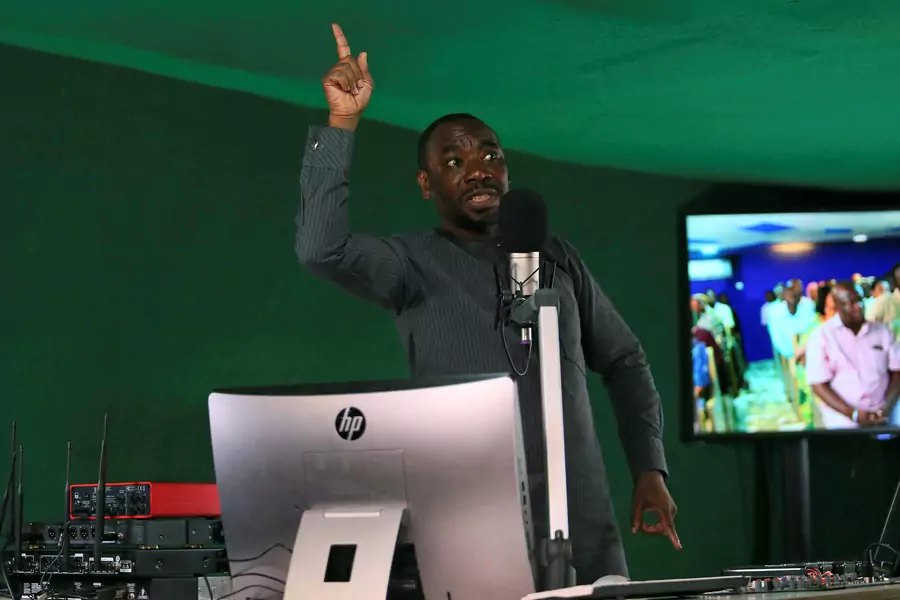Nigerian Radio Show Offers a Measure of Justice Where the State Does Not

The Nigerian formal judicial system, based on colonial precedent, is notoriously slow and often expensive. In effect, accessibility to justice is limited, and some would say its non-existent for the majority of Nigerians that are poor. Hence the popularity of courts conducted by traditional and religious rulers (many times the same individuals). These are often of colonial or pre-colonial origin. Islamic courts based on Sharia, or Islamic law, are especially popular in the predominately-Muslim parts of the country. Such courts have credibility with the people, especially in rural areas, and, as a practical matter, government officials usually accept their decisions. (Appeals to the formal judicial system from traditional courts are possible, but very expensive.)
Unable to rely on the state, urban Nigerians are also finding alternative ways to address their grievances. Some are turning to a radio show, “The Bakete Family,” hosted by Ahman Isah and broadcast by Human Rights Radio six days a week from Abuja. Participants reportedly present themselves at the studio or call in. Those selected present the alleged injustices they have suffered, ranging from unjustified firings to domestic disputes. The show names and shames government officials and unresponsive departments and also tries to mediate disputes, especially domestic ones. On occasion, it publicizes the phone numbers of government officials, urging listeners to call them to demand they take action. There is anecdotal evidence that the method works—at least sometimes. There are no listener figures, but media reports that there are large crowds that gather outside the show’s studio each morning.
More on:
“Shaming” would appear to be especially effective in a profoundly religious country, such as Nigeria. Ahman Isah says, “The laws are there, but the enforcement is nothing.” According to Isah, “It is as good as not being there. The laws only favor the rich and the mighty in the country, ordinary Nigerians are not being protected by law.” But, he also says, “One who has nothing has God, and one who has God has everything.” Most Nigerians would probably agree.
For more on Nigeria, Matthew Page and I provide an overview of its politics, history, and culture, including the threat of Boko Haram and religious conflicts in our new book, Nigeria: What Everyone Needs to Know, which was published by Oxford University Press in July.
More on:
 Online Store
Online Store